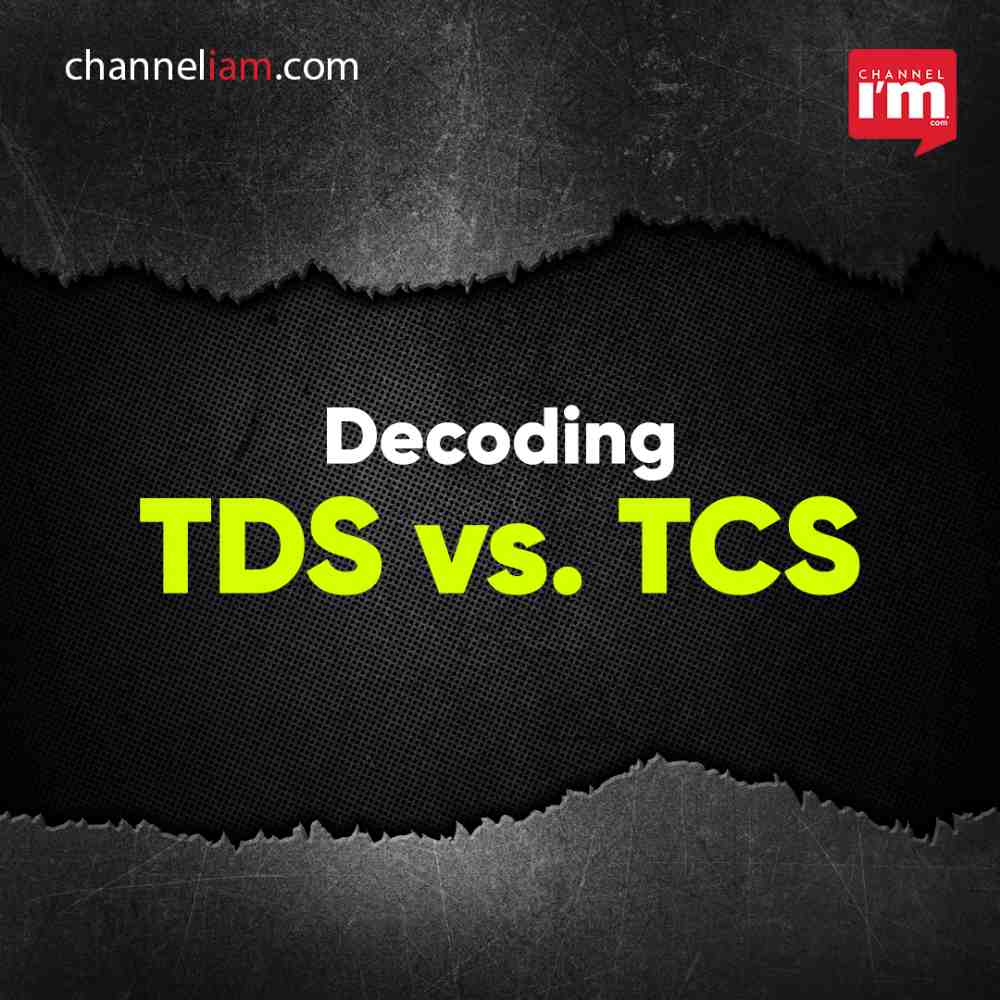In the realm of taxation, the Government collects revenue through various means, including Income tax, Direct taxes, and Indirect taxes. While direct taxes are paid directly to the Government by individuals earning income, indirect taxes are the responsibility of sellers to deposit with the Government. Two examples of indirect taxes are Tax Deducted at Source (TDS) and Tax Collected at Source (TCS).

Tax Deducted at Source (TDS): An Overview
TDS is an indirect form of tax collection wherein the deduction of tax is made at the point of the recipient’s income. It follows the principle of “pay as you earn” and “collect when it is earned.” Payments falling under the purview of TDS, as per the Income Tax Act, require a specific percentage to be deducted. For instance, Section 194Q mandates the deduction of tax at the source when the payment exceeds Rs. 50 lakhs for Goods and Services, including expenses like legal fees, technical services, and rent.
Tax Collected at Source (TCS): An Introduction
TCS is the tax levied on goods by sellers, collected from buyers at the time of sale. The seller then transfers this collected tax to the Government. Section 206C of the Income Tax Act, 1961 provides a list of items on which TCS can be imposed, including timber wood, liquor, minerals like lignite and coal, parking lots, and toll plazas. The threshold for TCS on the sale of goods is Rs. 50 lakhs.
Example Illustrating TDS and TCS
To better understand the differences between TDS and TCS, consider the following example: Suppose you receive a monthly salary of Rs. 20,000, and the company deducts 5% as TDS, resulting in a net salary of Rs.19,000. This deducted amount is the TDS paid at the source. In another scenario, if you purchase timber worth Rs.50,000 from a trader, you will pay a total of Rs. 52,000 (Rs. 50,000 + 5% of Rs. 50,000). The surplus Rs. 2,500 represents the TCS payment made to the timber trader, which can be claimed as TCS credit while filing the Income Tax Return.
Key Differences Between TDS and TCS
While both TDS and TCS are levied at the point of origin of payment, several notable distinctions set them apart:
- Meaning: TDS is the tax deducted at the source, while TCS is the tax collected by sellers from buyers.
- Transactions Covered: TDS encompasses expenses like interest, salaries, brokerage, commission, and rent, while TCS applies to the sale of items such as timber, minerals, liquor, parking lots, and toll plazas.
- Limits: TDS is applicable when the purchase of goods exceeds Rs. 50 lakhs, while TCS is triggered when the sale of goods surpasses the same threshold.
- Rates: TDS is deducted at a rate of 0.1% of the amount exceeding Rs. 50 lakhs, whereas TCS is collected at a rate of 0.1% of the sale amount exceeding Rs. 50 lakhs.
- Time of Deduction/Collection: TDS is deducted at the time of payment, while TCS is collected by the seller during the sale.
- Person Responsible: TDS is deducted by the individual or company making the payment, while TCS is collected by the individual or company selling the goods.
- Due Dates: TDS must be deposited by the 7th of each month, whereas TCS should be deposited within ten days from the end of the month.
- Consequences of Non-Deposit: Failure to deposit TDS or TCS on time or file them correctly under Section 271H can result in legal consequences, including fines ranging from Rs. 10,000 to Rs. 1,00,000, along with potential imprisonment.
Legal Consequences of Failing to Deposit TDS or TCS
It is essential for deductors or collectors to fulfil their tax obligations promptly. Neglecting to pay TDS or TCS on time or filing them incorrectly can lead to legal repercussions. Under Section 201(1A) of the Income Tax Act, non-deduction of TDS or late TDS payments can result in an interest charge of 1.5% per month from the date when the tax should have been deducted. Similarly, failure to deposit TCS may incur a stable interest rate of 1%. Additionally, individuals may face imprisonment ranging from three to seven years.
Fulfilling Tax Obligations: Importance and Tax-Saving Measures
Meeting tax obligations on time is crucial for individuals and companies. Those subject to TDS can claim refunds by filing their returns promptly, while collectors of TCS must ensure the timely deposit of the collected tax to the appropriate authorities. Additionally, individuals can explore tax-saving measures, such as investing in life insurance, mutual funds, and other eligible instruments.
Understanding the nuances of TDS and TCS helps taxpayers navigate the complexities of the taxation system, ensuring compliance with legal requirements and responsible financial management.
